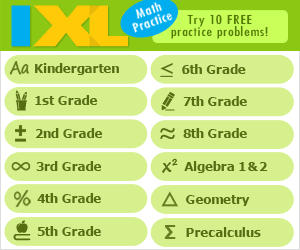What is Cooperative Learning?
Cooperative learning helps students become actively and constructively involved in content, to take ownership of their own learning, and to resolve group conflicts and improve teamwork skills.
Definition: Cooperative learning is a form of active learning where students work together to perform specific tasks in a small group.
Each cooperative learning group should be carefully selected by the teacher so that a heterogeneous structure allows each student to bring his or her strengths to the group effort.
The teacher then gives the students an assignment, often helping them to divvy up the work that needs to be done so that each individual in the group has a certain role to play. The end goal can only be reached when every member of the group contributes effectively. "Cooperative learning, In cooperative learning, students work together in small groups on a structured activity. They are individually accountable for their work, and the work of the group as a whole is also assessed. Cooperative groups work face-to-face and learn to work as a team." http://k6educators.about.com/od/educationglossary/g/gcooplearning.htm
Cooperative Learning: Effective Teamwork for Engineering Classrooms - What Makes Cooperative Learning Work.
Principal Ideas
http://www.thirteen.org/edonline/concept2class/coopcollab/
" learners actively participate;
" teachers become learners at times, and learners sometimes teach;
" respect is given to every member;
" projects and questions interest and challenge students;
" diversity is celebrated, and all contributions are valued;
" students learn skills for resolving conflicts when they arise;
" members draw upon their past experience and knowledge;
" goals are clearly identified and used as a guide;
" research tools such as Internet access are made available;
" students are invested in their own learning.Group Discussion - read these points about the cooperative learning , then discuss how you have done this in your class.
5 Elements of Cooperative Learning
Traits Needed for Effective Group Process - Lesson plan
Types of Cooperative Learning
Jigsaw:
- http://www.jigsaw.org/steps.htm - Jigsaw - divide into teams.. a member of each team has same assignment - gather the info and then go back to your group to present the info and pull together the project.
Group Project :
Plants
Roots / Stems / Flowers / Seeds / Leaves - Create Groups with one of each subsection. All subsections get together and come up with 3 facts their part of the plant does. Then group comes back together, teaches their group about their individual part and then creates a presentation for class in PPT to share with class.
Descriptions of Some Commonly Used Techniques
WebQuests:
- http://www.internet4classrooms.com/using_quest.htm - Using A WebQuest in your classroom
- Download a WebGuide template - build a lesson around a single Internet site or see an example - See an index of WebGuides
Cooperative Learning Resources
- http://www.eges.acadia.k12.la.us/Cooperative%20Learning%20Websites.htm - Many online resource links.
- http://projects.coe.uga.edu/epltt/index.php?title=Cooperative_Learning - Cute illustration of cooperative learning.
- http://www.lz95.org/technology/wirelesswonders/WebQuests/districtquests.htm Webquests
- http://old.escambia.k12.fl.us/instres/langarts/thenearlyperfectlessonplan.doc - Lesson Plan Template
- http://old.escambia.k12.fl.us/instres/langarts/LessonPlanningElementary.htm - Click on Blooms Taxonomy
- http://www.jbedwards.org/gradesfolder/gr1folder/millswebpage/webquestmills1/introduction.html - First Grade Webquest - Oceans of Sea Animals
- http://home.att.net/~teaching/refbook.htm - Compilation of lessons using cooperative learning
Individual Lesson Plans :
- Animal habits - The students will work in cooperative groups to create a multimedia presentation that represents specific animal habits
- http://www4.nau.edu/clde/lessonplanpdf/AntFamiliesMexAmer.pdf - Ant Families
- http://www.col-ed.org/cur/math/math20.txt - Making Cookies
- http://home.att.net/~teaching/socst/history.pdf - Early American History
- http://www.wilderdom.com/games/descriptions/SurvivalScenarios.html - Survival Scenario Exercise
- http://www.econedlink.org/lessons/index.php?lesson=EM257 - The Penny Problem
Search Internet4Classrooms







